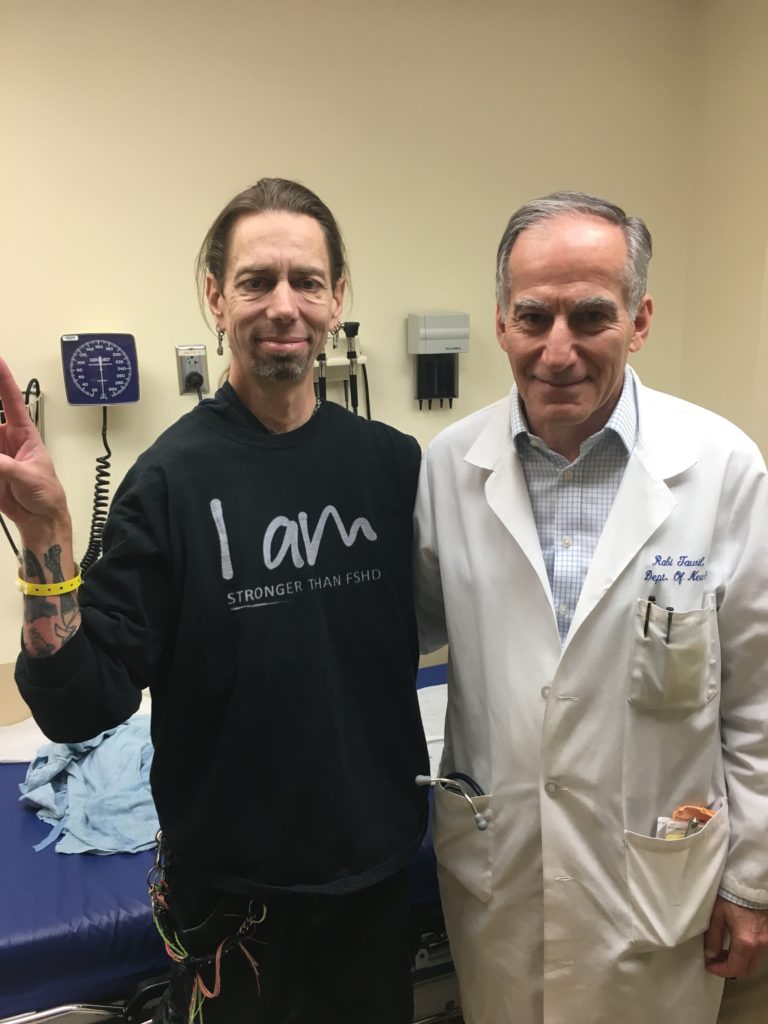
To crack the code of FSHD, patients are absolutely essential
All of the breakthroughs—the discovery of the genetic causes, understanding why some patients vary so greatly in the severity of their symptoms, teasing out the biochemical pathways that could point to future treatments—were made because patients stepped up to the plate.
Too often, we hear patients say they’ll volunteer when there’s a treatment. But we will never get to a treatment unless patients participate in fundamental research now. FSHD is uniquely human, so no laboratory mouse can ever fully model the disease. The genetic “package” that causes FSHD is found only in people. We owe an enormous debt to the patients who give DNA samples. Who submit to long interviews and exhausting physical tests. Allow a surgeon to cut out a small muscle sample. Who fight claustrophobia to lie in the narrow bore of an MRI machine.
Equally important are patients’ family members, both affected and unaffected, who provide the best experimental controls because of their shared genetic and environmental backgrounds. A parent or sibling who has very mild symptoms may hold the key to understanding the factors that protect against the full-blown development of FSHD symptoms in a more severely affected family member.
We are more hopeful today than ever before that a treatment is within sight. We cannot guarantee when that treatment will arrive, but here’s one thing we guarantee: If you volunteer for research, your participation will without question help move us a step closer to that day.
Scientific Overview of FSHD
Read the latest on wikipedia
Glossary of Scientific Terms
Facio selects first series of potential drug development candidates
We are sharing this news release from Facio, the Netherlands-based biotech founded by FSHD advocates and business leaders with the sole mission of developing treatments for FSHD. In this story,… Read More »
Acceleron Announces Preliminary Results from Part 1 of the ACE-083 Phase 2 Trial in Patients with Facioscapulohumeral Dystrophy
We are sharing the following press release from Acceleron Pharma, Inc., regarding the progress of their Phase 2 clinical trial of ACE-083. The FSH Society collaborates with Acceleron to help… Read More »
Video: Molecular therapy for FSH muscular dytrophy
In this FSH Society webinar, Scott Q. Harper, PhD, of Nationwide Children’s Research Institute describes FSHD genetics and explains how gene and molecular therapy could be used to block the… Read More »
Recent FSHD research publications
Notable findings and advances from the past six months by DANIEL PAUL PEREZ Chief Science Officer, FSH Society Asterisk denotes FSH Society funding acknowledged in paper. “Conservation and innovation in… Read More »






